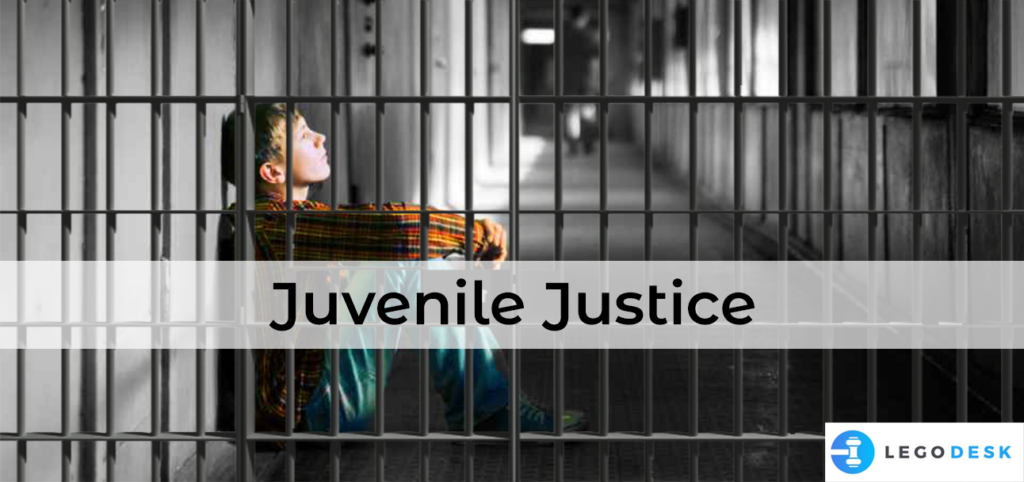All About Juvenile Justice

INTRODUCTION TO JUVENILE JUSTICE
In the last few decades, the crime rate by Juvenile under the age of 16 years has increased. There are many reasons behind the increasing crime rate, some of which can be lack of education, upbringing environment of the child, economic conditions and lack of parental care. And it is the most shocking reality that, children especially under the age group of 5 to 7 years) nowadays are used as a medium of committing crimes as it is very easy to manipulate them.
Read Also: Everything About Child Marriage Act in India
We are all aware of the frightful incident of “nirbhaya delhi gang rape case”, on December 16, 2012, that shocked the whole nation and many debates were started among legal fraternity and socialists. The most shocking and debated fact was of the accused who was just six months short to attain the age of 18 years. The involvement of a minor in such a heinous crime of rape forced the Indian legislation to introduce a new law and thus, Indian Parliament came up with the “Juvenile Justice (Care and Protection), 2015” which is the new law. This act has got some remarkable changes. One of which is juvenile under the age group of 16 to 18 years should be tried as an adult.
According to subsection 12 of Section 2 of The Juvenile (Care and Protection) Act, 2015 a “child” means a person who has not completed eighteen years of age. The Act classifies the term “child” into two categories: –
- “child in conflict with law”, and
- “child in need of care and protection”.
The child who has committed an offense and he or she are under the age of 18 years on the date of commission of the offense are basically called as “child in conflict with law”. The second subcategory is “child in need of care and protection” means a child as defined under Section 14 of the Act.
JUVENILE JUSTICE ACT, 2015
The aims to consolidate the laws relating to children alleged and found to be in conflict with law and children in need of care and protection by catering and considering their basic needs through proper care& protection, development, treatment, social- integration, by adopting a child-friendly approach in the adjudication and disposal of matters in the best interest of children. The act also focuses on the rehabilitation of juvenile offenders through various childcare houses and institutions. The most important subjects of the Act are as follows:-
Claim of Juvenility
The most debatable and the first question among the legal fraternity and socialists is the “claim of juvenility”. The Juvenile Justice Board decides the juvenility. The Board has to decide the claim of juvenility before the court proceedings but the claim of juvenility can be raised before the court at any stage of proceedings and even after the disposal of the matter by the Board. The Board had to consider Rule 12 of the Juvenile Justice Rules, 2007 in order to determine the claim of juvenility.
Read Also: Child Adoption laws in India
In case of Kulai Ibrahim v. the State of Coimbatore, it was observed by the Court that accused has right to raise the question of juvenility at any point of time during the trial or even after the case is disposed under the Section 9 of JJ Act, 2015.
In case of Deoki Nandan Dayma v. State of Uttar Pradesh, the court held that entry in the register of school mentioning the date of birth of student is admissible evidence in determining the age of the juvenile or to show that whether the accused is juvenile or child.
In Satbir Singh & Others v. the State of Haryana, Supreme Court again reiterated that for the purpose of determining whether accused is juvenile or not, the date of birth which is on the school records will be taken into consideration by Juvenile Justice Board.
In case of Krishna Bhagwan v. the State of Bihar the court stated that for the purpose of trial under Juvenile Justice Board, the relevant date for the considering the age of a juvenile should be on which the offence has been committed.
But later in case of Arnit Das v. the State of Bihar, the Supreme Court overruled its previous decision and held that date to decide on a claim of juvenility should be the date on which the accused is brought before the competent authority.
The increasing rate of juvenile crime in India is a very concerning issue and need to be focused upon. Although the government has laid various legislation and rules to stop the incidents of juvenile crimes the present laws on juveniles is not creating a major effect on the juveniles and thus the results are not fruitful and the intention of the legislation is not being fulfilled.
Try our Debt Resolution solutions today Request a Demo